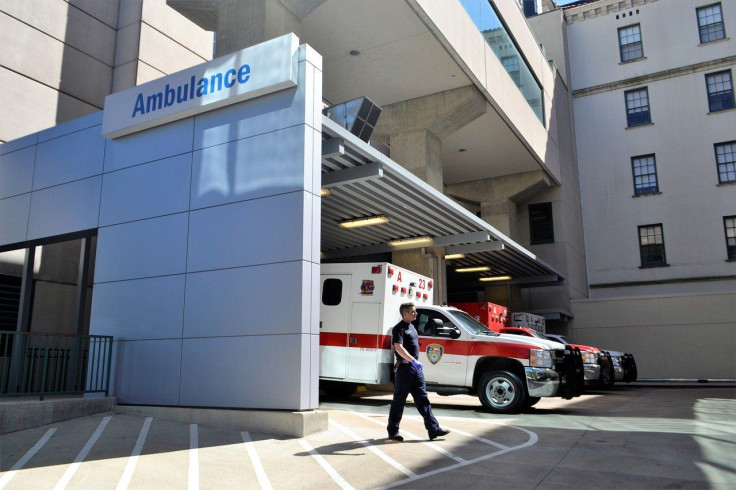Frontline Medical Workers With PPE Still At Risk Of Contracting COVID-19

KEY POINTS
- Frontline health workers, especially those who belong to the minority, are at a much higher risk of contracting COVID-19
- According to a study, paramedics are at a higher risk compared to other health workers
- Massachusetts General Hospital researchers analyzed data from almost 100,000 frontline medical workers in the U.S. and U.K.
Medical personnel working in the frontlines of the coronavirus battle were at a much higher risk of contracting the deadly bug, a new study revealed.
During the peak of the coronavirus pandemic in the United States and the United Kingdom, frontline health workers, particularly those who belong to minority communities, were at a much higher risk of contracting COVID-19 compared to other individuals. This was revealed in a new study "Risk of COVID-19 among front-line health-care workers and the general community: a prospective cohort study."
Paramedics, who are typically the first to see ailing patients, are at a higher risk of contracting COVID-19 when compared to other health workers, researchers wrote in their study. This is particularly true for frontline medical care workers who are Asian, Black or belong to other minority backgrounds, a report from US News & World Report stated.
Massachusetts General Hospital researchers analyzed data gathered by a smartphone app from over 2 million members of the general public and almost 100,000 frontline medical workers in the U.S. and U.K.
From March 24 to April 23, researchers found over 5,500 respondents tested positive for COVID-19. They also found the risk of health workers for COVID-19 infection was three times as high compared to non-health workers. Among the medical personnel, Asians, Blacks, and health workers of varying ethnicities were twice at risk for contracting the infection compared to their white counterparts.
Medical personnel who reported they do not have adequate PPE like gloves, gowns and masks are at a much higher risk for infection. Researchers noted, however, that even with adequate protection, the risk of coronavirus infection is still very much present.
"Although it is clear that health care workers on the front line of the fight against COVID-19 have an increased risk of infection, our country continues to face vexing shortages of PPE," said Dr. Andrew Chan, the study's senior author and chief of the clinical and translational epidemiology unit at Mass General.
In a hospital news release, Chan also explained their results highlight the importance of providing sufficient access to PPE. He added the study also suggests systemic racism is linked to inequalities when it comes to PPE access, adding that this is likely a contributory factor to the unequal infection risk among frontline medical workers belonging to the minority. Their study and findings were published in The Lancet Public Health on July 31.
© Copyright IBTimes 2025. All rights reserved.





















